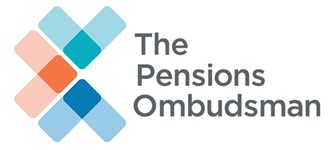Over one in three (37 per cent) pension transfers flagged as being 'high risk' for a scam since July 2018 would have satisfied the first condition outlined in the Department for Work and Pensions’ (DWP) proposed legislation to fight scams, data from XPS’ Scam Protection Service has shown.
In addition to this, it revealed that 69 per cent of transfers flagged as being at some risk of a scam were likely to pass the first condition, whilst just 64 per cent of those with no scam red flags would have passed the first condition.
The provider acknowledged that the proposed conditions will allow trustees to have greater ability to prevent transfers in certain circumstances, empowering trustees to restrict transfers where there is a risk of pension scams.
However, it warned that trustees must continue to carry out “robust scam protection measures”, such as those recommended in the Pension Scams Industry Group Code on Combatting Pension Scams, including analysing incoming requests and speaking with members to ensure they understand any risks involved.
XPS Pensions Group partner, Mark Barlow, commented: “The ability for trustees to block transfers in certain circumstances is a welcome step forward in the fight against pension scams.
“However, we are concerned that these conditions could suggest that certain transfers are “scam free” when we know this not to be the case.
“Evidence from our Scam Protection Service demonstrates how robust scam protection measures will continue to be vital in protecting member outcomes”.
LCP have also warned that the new anti-scam measures risk “false positives and false negatives”, arguing that further guidance will be needed to ensure that the rules are applied consistently and ensure member benefit for members.
LCP senior consultant, Daniel Jacoboson, commented: “These new rules have been designed with the best of intentions, but we are concerned that they may not have the desired effect. Some key concepts such as ‘high cost’ or ‘high risk’ are very subjective and trustees may not be well placed to make such judgments.
“Unless further clarification is issued there is a risk of inconsistency as different trustees define these terms in different ways.
“There is also a risk of false positives – legitimate transfers being blocked – and false negatives – scam transfers being allowed through.
“We are especially concerned that trustees who have real concerns about a destination scheme will not have the right to block a transfer unless a narrow list of red flags is triggered.
"If a member only has to attend a Money and Pensions Service (Maps) interview to override trustee concerns this is likely to allow some scam transfers to slip through the net”.
The governments consultation on the proposals for tackling pension scheme fraud has been met with mixed industry response since its launch, with industry experts calling on the government to ensure balance and create guidance to support pension scheme trustees.
Commenting in response to the concerns, a DWP spokesperson said: “We have issued this consultation to gather views from industry and the public on the regulations and their application, and will consider all the views put forward.
“Pension scammers are the lowest of the low, and with the growth in recent years of online scams we must act now to curb them.”
Latest News
-
OBR analysis reveals potential impact of salary sacrifice changes
-
Strong funding levels continue as endgame landscape reshaped by innovation
-
Harwich Haven Authority Pension Fund finalises £45m buy-in with Royal London
-
GAD publishes LGPS gender pension gap reporting guidance
-
DB scheme funding levels continue to improve heading into 2026
-
News in brief - 6 February 2026
Private markets – a growing presence within UK DC
Laura Blows discusses the role of private market investment within DC schemes with Aviva Director of Investments, Maiyuresh Rajah
The DB pension landscape
Pensions Age speaks to BlackRock managing director and head of its DB relationship management team, Andrew Reid, about the DB pensions landscape
Podcast: From pension pot to flexible income for life

Podcast: Who matters most in pensions?

In the latest Pensions Age podcast, Francesca Fabrizi speaks to Capita Pension Solutions global practice leader & chief revenue officer, Stuart Heatley, about who matters most in pensions and how to best meet their needs
© 2019 Perspective Publishing Privacy & Cookies










Recent Stories